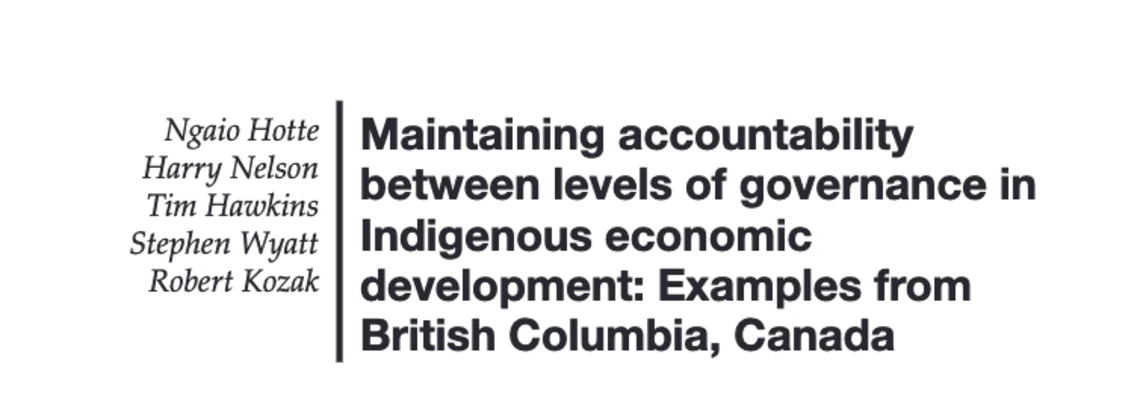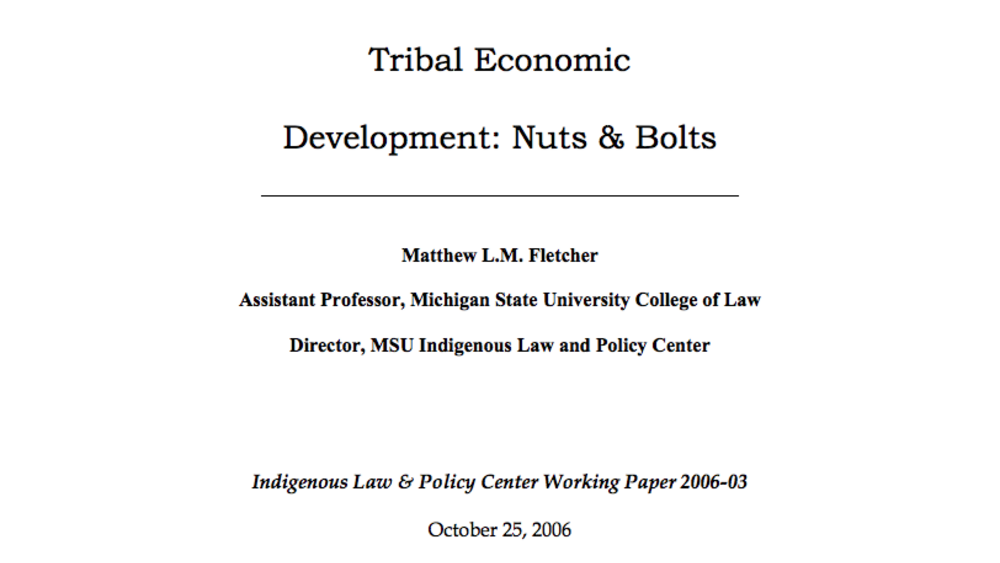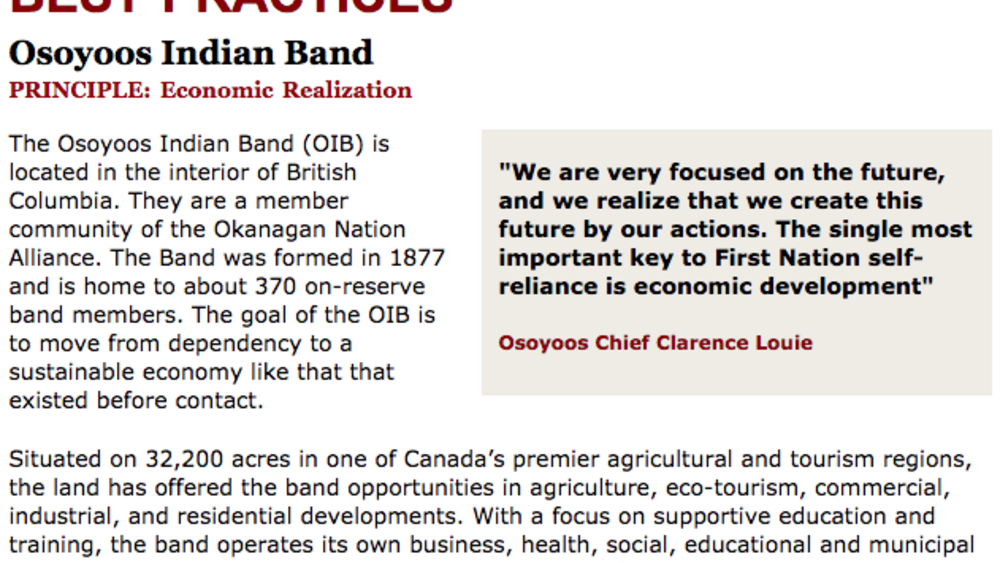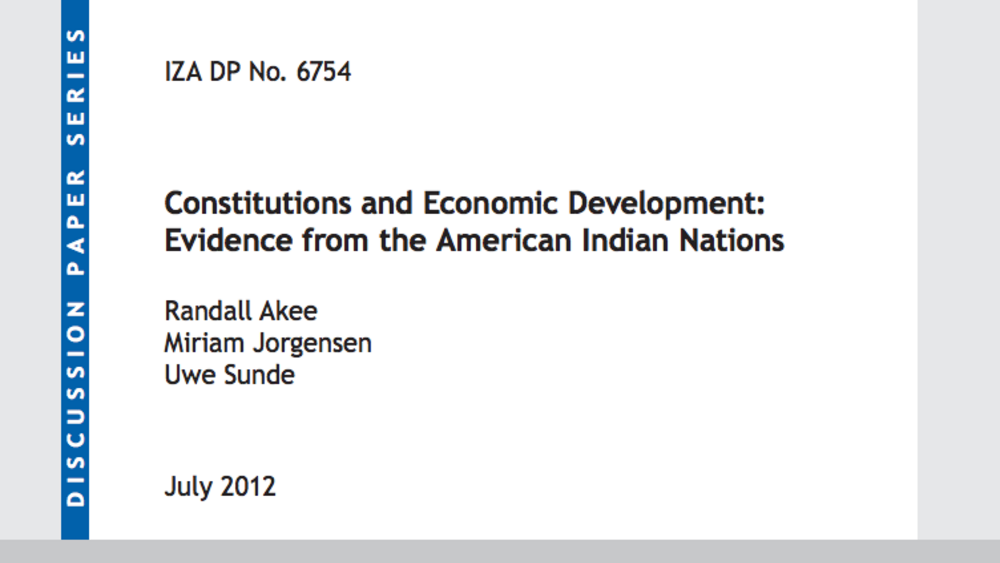Many Indigenous communities in Canada have established economic development corporations (EDCs) to support economic development that meets community goals. Indigenous EDCs, like social enterprises, typically prioritize multiple socio-economic goals and may be used to limit political influence on business operations; however, complete separation can be detrimental to success. This article explores formal mechanisms used by Indigenous EDCs to maintain accountability between levels of governance and ensure Indigenous community- owned businesses remain focused on community objectives. A literature review, interviews and document analysis were used to identify formal mechanisms to maintain accountability in the context of Indigenous community-owned forestry businesses in British Columbia, Canada.
Additional Information
Hotte, N., Nelson, H., Hawkins, T., Wyatt, S., & Kozak, R. (2018). Maintaining accountability between levels of governance in Indigenous economic development: Examples from British Columbia, Canada. Canadian Public Administration,61(4), 523-549.https://doi.org/10.1111/capa.12287




